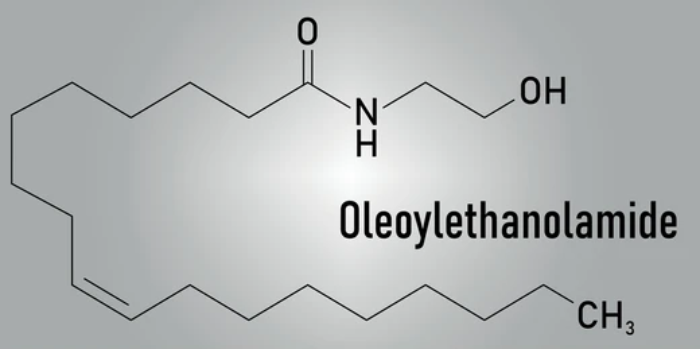Puma Biotechnology, Inc., a biopharmaceutical company, has announced the launch of the ALISCAâ„¢-Breast1 trial (PUMA-ALI-1201; NCT06369285) for Alisertib
This is a Phase II clinical study of alisertib in combination with endocrine therapy for patients with hormone receptor-positive (HR+), human epidermal growth factor receptor 2-negative (HER2-negative) recurrent or metastatic breast cancer. This trial focuses on patients who have previously been treated with CDK 4/6 inhibitors and have received at least two prior lines of endocrine therapy in the recurrent or metastatic setting.
The ALISCAâ„¢-Breast1 trial will include up to 150 participants, who will be randomized in a 1:1:1 ratio to receive alisertib at one of three dosages—30 mg, 40 mg, or 50 mg—administered twice daily on days 1-3, 8-10, and 15-17 of a 28-day treatment cycle, combined with the investigator’s choice of endocrine therapy. As part of the study, patients will also provide blood and tissue samples to facilitate biomarker analysis.
The primary objective of the trial is to identify the optimal alisertib dose when paired with endocrine therapy. The main endpoints for evaluating the treatment’s effectiveness include objective response rate, duration of response, disease control rate, progression-free survival, and overall survival. As a secondary objective, Puma plans to assess these efficacy outcomes in relation to biomarker subgroups, determining whether certain biomarkers are linked to treatment responses. This biomarker analysis will be conducted concurrently with the clinical trial.
Puma intends to conduct an interim analysis to evaluate the safety and efficacy of the treatment during the course of the study. Based on the trial’s findings, Puma anticipates engaging with the U.S. Food and Drug Administration (FDA) to discuss a potential approval pathway for alisertib in the treatment of HER2-negative, HR+ metastatic breast cancer. Once the optimal alisertib dosage is identified, the company plans to move forward with the design of a pivotal Phase III trial. This trial would likely involve a randomized comparison of alisertib plus investigator’s choice of endocrine therapy versus placebo plus the same endocrine therapy for patients with HER2-negative, HR+ metastatic breast cancer.
Dr. Joyce A. O’Shaughnessy, a leading researcher in breast cancer, emphasized the importance of new therapies for patients with HER2-negative, HR+ metastatic breast cancer, particularly those whose disease progresses after treatment with CDK4/6 inhibitors. She referenced promising results from earlier trials, such as the TBCRC 041 trial, which demonstrated alisertib’s clinical activity when used with endocrine therapy in cases of CDK4/6 inhibitor-resistant metastatic breast cancer, with good tolerability.
Alan H. Auerbach, CEO of Puma, expressed excitement about the trial’s initiation and the ongoing development of alisertib. He highlighted the encouraging data from prior studies, including the alisertib monotherapy trial published in Lancet Oncology, the TBCRC 041 trial published in JAMA Oncology, and a randomized study comparing alisertib plus paclitaxel to paclitaxel alone. Auerbach anticipates that enrollment in the ALISCAâ„¢-Breast1 trial will proceed smoothly, with initial results expected in 2025.
Commentary by YourDailyFit Columnist Alice Winters

Puma Biotechnology’s Phase II ALISCAâ„¢-Breast1 trial represents an ambitious move to expand the therapeutic arsenal for HER2-negative, HR+ metastatic breast cancer, particularly for patients whose disease has progressed after CDK4/6 inhibitor treatment. Alisertib, an investigational drug, has demonstrated activity in earlier trials, and this new study aims to refine its dosing strategy in combination with endocrine therapy—an approach that could potentially address a significant unmet need in oncology.
The trial’s design is methodologically sound, offering three alisertib dosing regimens, which will help determine the most effective dose for use in combination with other therapies. The inclusion of biomarkers in this trial is especially important, as it aligns with current trends in precision medicine, which seeks to tailor treatments based on the unique molecular characteristics of each patient’s cancer. The parallel biomarker analysis is crucial not just for understanding efficacy but also for identifying predictive biomarkers that could guide future patient selection, improving both clinical outcomes and reducing unnecessary side effects.
Puma’s strategy of combining alisertib with endocrine therapy rather than using it as a monotherapy could enhance the potential for a broader range of patients to benefit from the drug. This combination approach also taps into the current paradigm of targeting cancer on multiple fronts—potentially increasing response rates compared to using endocrine therapy alone. However, one key point to monitor will be the safety and tolerability of these combinations. Earlier studies, such as the TBCRC 041 trial, have indicated that alisertib could be well-tolerated, but any dose-related adverse events in this new trial would warrant closer scrutiny, particularly since the patient population is already heavily pre-treated.
While the early-stage data from the company’s previous trials has been encouraging, the true value of alisertib will be determined by its performance in this large, randomized study. Puma has made a wise decision to engage with global regulatory agencies after identifying the optimal dosing regimen, which will help streamline the drug’s path to potential approval. The market for HER2-negative, HR+ metastatic breast cancer treatments is competitive, but there is a clear opportunity for new options that cater to the growing population of patients who have become resistant to current standard therapies, including CDK4/6 inhibitors.
Ultimately, Puma’s efforts to innovate in this therapeutic space should be applauded, but the success of alisertib in clinical practice will depend on its ability to deliver consistent, significant clinical benefits while maintaining a favorable safety profile. As the trial progresses, the oncology community will be watching closely to see if alisertib can indeed fulfill the promise indicated by early data and clinical rationale. The anticipated results from the ALISCAâ„¢-Breast1 trial, expected in 2025, will be pivotal in determining whether alisertib will secure its place in metastatic breast cancer treatment regimens.



